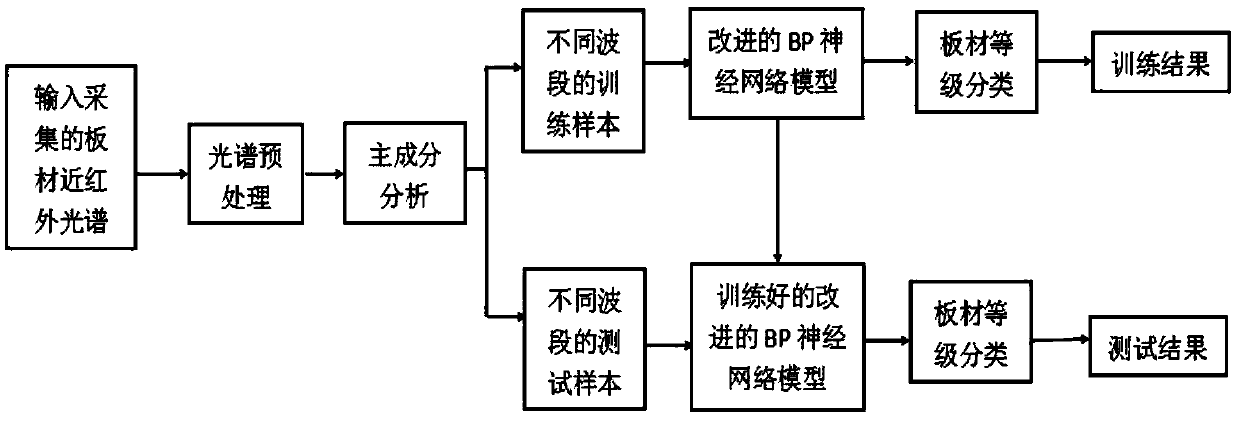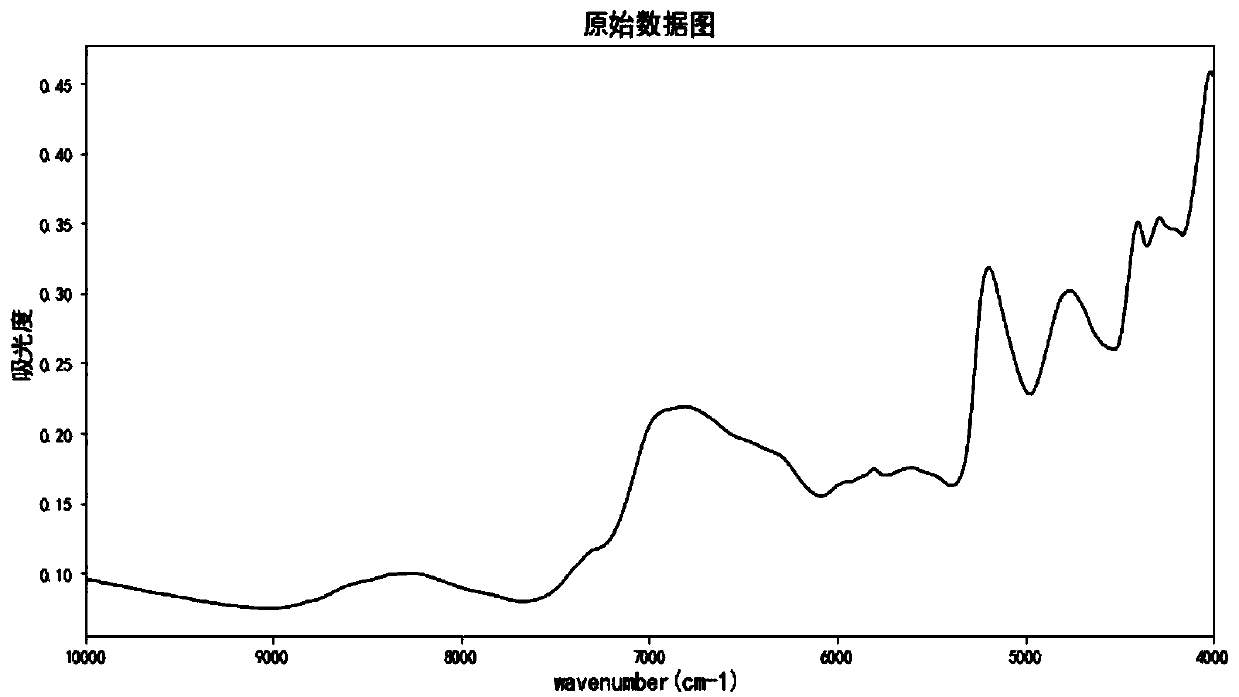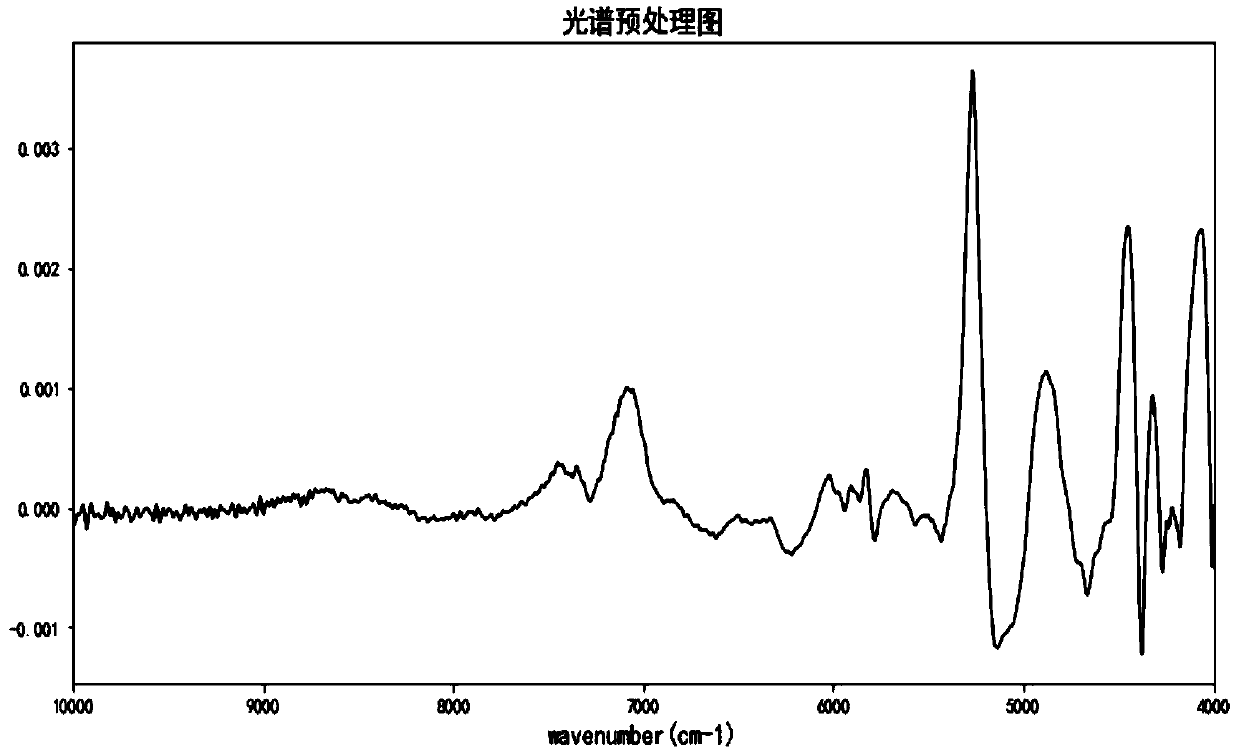Method for identifying grade of wood for Chinese zither panel through near infrared spectrum based on neural network
A near-infrared spectroscopy and neural network technology, applied in the field of high-level testing, can solve the problems of decreasing year by year, the subjective influence of the discriminator on the number of relevant practitioners, and the long discrimination time, so as to achieve a low misjudgment rate and more objective discrimination results. , the effect of high accuracy
- Summary
- Abstract
- Description
- Claims
- Application Information
AI Technical Summary
Problems solved by technology
Method used
Image
Examples
specific Embodiment approach 1
[0024] Specific implementation mode one: this implementation mode provides a kind of method based on neural network near-infrared spectrum identification paulownia wood grade for guzheng panel, such as figure 1 As shown, the method includes the following steps:
[0025] Step (1): Perform Savitzky-Golay convolution smoothing and first-order derivative preprocessing and principal component analysis on the near-infrared spectral data of N groups of different bands containing different grades of guzheng panel wood, and transform the near-infrared spectral data of different bands Infrared spectrum data are randomly grouped, and n sets of data are used as training sample sets, and N-n sets of data are used as test sample sets.
[0026] Step (2): construct the improved BP neural network model, the improved BP neural network model comprises input layer, hidden layer and output layer, uses Softmax function as the classification function of model, and concrete construction steps are as ...
specific Embodiment approach 2
[0034] Embodiment 2: This embodiment is a further description of Embodiment 1. The specific implementation steps of this embodiment are as follows:
[0035] (1) Collect the near-infrared spectral data of the wood used for the guzheng panel to be tested.
[0036] (2) Spectral data analysis:
[0037] (2a) Observing the original spectral curve, it is found that the spectra overlap and the spectral peaks overlap. This embodiment combines the improved BP neural network algorithm to extract spectral features. Observing the original spectrum, it can be found that the wood is at a wavenumber of 10000cm -1 to 7100cm -1 The absorption is the smallest near the area, at the wave number 6806cm -1 to 5192cm -1 Absorption area is slightly higher at wavenumber 4400cm -1 to 4016cm -1 The area around the district is the highest;
[0038] (2b) Refer to Figure 4 , spectral data at 6806cm -1 、5804cm -1 、5602cm -1 、5192cm -1 、4760cm -1 、4400cm-1 、4286cm -1 、4016cm -1 There is an ob...
specific Embodiment approach 3
[0056] Specific embodiment three: In this embodiment, three grades of paulownia wood suitable for guzheng panels and three unknown grades of wood samples for panels are used as analysis objects.
[0057] Such as figure 1 As shown, the near-infrared-based method for class recognition of wood for guzheng panels in this embodiment uses Savitzky-Golay convolution smoothing and first-order derivative methods to preprocess data sets, perform principal component analysis operations, and analyze spectra to determine the absorption of certain chemical bonds Peak position, determine the band data sent to the neural network model, and divide it into a training sample set and a test sample set, use the improved BP neural network model, send the feature vector to the Softmax classifier, adjust the number of nodes in the hidden layer and participate in The band of the experiment, the best result of the plate grade classification of the training sample set is obtained, and the final spectral...
PUM
 Login to View More
Login to View More Abstract
Description
Claims
Application Information
 Login to View More
Login to View More - R&D
- Intellectual Property
- Life Sciences
- Materials
- Tech Scout
- Unparalleled Data Quality
- Higher Quality Content
- 60% Fewer Hallucinations
Browse by: Latest US Patents, China's latest patents, Technical Efficacy Thesaurus, Application Domain, Technology Topic, Popular Technical Reports.
© 2025 PatSnap. All rights reserved.Legal|Privacy policy|Modern Slavery Act Transparency Statement|Sitemap|About US| Contact US: help@patsnap.com



